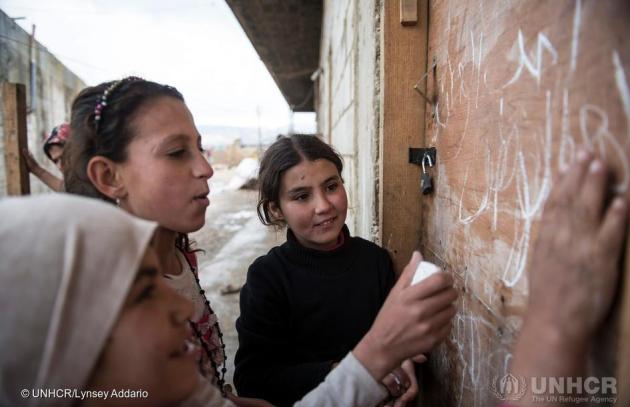Syrian_Refugees_UNHCR.jpg

Based on country-level technical cooperation, and in partnership with international agencies, IIEP-UNESCO has developed guidance to help countries answer that question and address the risks of conflict and disaster in their education sector plans.
More children are affected by conflict situations than one might think. Worldwide, one in six school-age children are in a country experiencing conflict and protracted crises such as war, disasters, and public health emergencies. One in three of the world’s 121 million out-of-school children live in fragile or conflict-affected situations (GPE, 2016). Natural and human-made disasters can have a similar devastating effect on education systems.
Educational planning which is sensitive to the causes and triggers of conflict, and which addresses potential natural hazards, can reduce – and sometimes prevent – the effects of conflict and disasters on education, saving lives in the process. In addition, conflict-sensitive and risk-informed planning can be cost-efficient, protecting investments in infrastructure, equipment, and supplies.
Conflict-sensitive and risk-informed planning in education
Valuable lessons have been learned on the crisis-sensitive planning process through IIEP- UNESCO’s technical support to countries affected by conflict and disaster. The support to the ministries of education in Burkina Faso, South Sudan and Uganda to ensure that their education sector planning process were conflict-sensitive and risk-informed was recently documented in three case studies. These case studies highlight the importance of government engagement and leadership in the planning process, and the necessity of coordination mechanisms that can ensure appropriate follow up and alignment with government priorities on crisis-sensitive education. Furthermore, the need for capacity development is often particularly relevant in a context of crisis, as the crisis may have depleted capacities, and weak capacities may have contributed to the crisis.
Download the Policy Brief on Conflict-sensitive and risk-informed planning in education
Planning for crisis
Crisis-sensitive planning begins with a risk analysis, otherwise known as a conflict and disaster risk analysis. There are many tools that can support the development of such an analysis, including the Rapid Education and Risk Analysis (RERA), UNESCO-IIEP’s and PEIC’s guidance and more. These analyses then feed into policy and plan development and implementation.
Find out more about how education systems can prevent and prepare for crisis.
IIEP at #CIES2017
During the upcoming Comparative and International Education Society (CIES) Conference in Atlanta, Georgia, IIEP-UNESCO will be hosting or participating in three sessions that have a specific emphasis on crisis-sensitive planning.
Tuesday, march 7th, 2017
Lessons from Fields pilots in multi-risk and education analysis for crisis and conflict-affected environments - organized by USAID ECCN
- During this session panelists discussed how to design education programs that are adapted and tailored to multiple risk contexts like conflict, natural hazards, gang violence, and political instability in order to reach their global education goals.
TUESDAY, MARCH 7TH, 2017
Leaving no one behind: Planning education for the inclusion of displaced populations - organized by IIEP.
- This panel brought together representatives from ministries of education and international agencies to examine how educational planning can address the needs of displaced populations to ensure that the rights of refugee and IDP children and youth to quality education are effectively met. The presentations were informed by the outcomes of a recent e-Forum on displaced populations, and structured around the themes of Access, Quality and Management based on country-level experiences.
Download the report "Planning for inclusion of displaced populations in the education sector"
WEDNESDAY, MARCH 8TH, 2017
How to strengthen evidence to improve education in conflict and crisis settings
- This panel aimed to build the case for greater investment in data and evidence in education in crisis settings as a critical step towards achieving SDG 4. Key issues and challenges related to conducting research in crisis contexts were also discussed, while highlighting the critical importance of developing an evidence base for educational planning and programming in crisis situations.
For more resources on crisis-sensitive planning, please have a look at IIEP’s online document repository.






